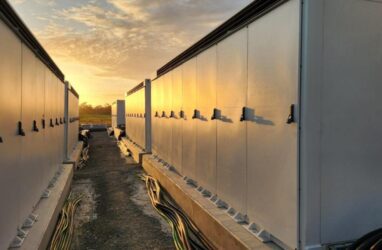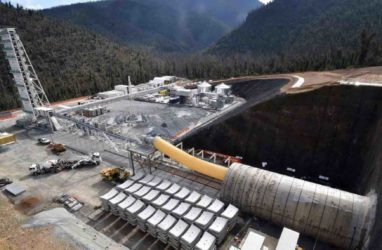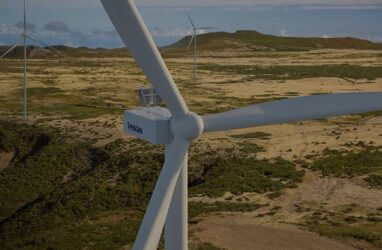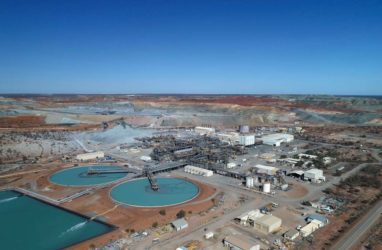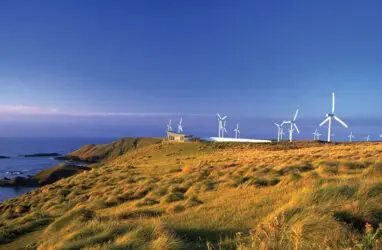Feed aggregator
Decontamination of landfill waste leads to increase in toxic chemicals, says study
Exclusive: Researchers find treatment plants designed to clean up leachate liquid waste boost levels of banned PFAS
Processes intended to decontaminate noxious liquid landfill waste before it enters rivers and sewers have been found to increase the levels of some of the worst toxic chemicals, a study has shown.
Landfills are well known to be a main source of PFAS forever chemicals – or per- and polyfluoroalkyl substances – but the new study shows that the treatment plants designed to clean up the liquid waste can instead boost the levels of banned PFAS such as PFOA and PFOS, in some cases by as much as 1,335%.
Continue reading...Carbon removals developer and concrete supplier launch project in London
‘Two sides of the same coin’: governments stress links between climate and nature collapse
Representatives at the Cop16 summit in Colombia negotiated against a backdrop of extreme weather and ecosystem collapse
As world leaders gathered in Colombia this week, they also watched for news from home, where many of the headlines carried the catastrophic consequences of ecological breakdown. Across the Amazon rainforest and Brazil’s enormous wetlands, relentless fires had burned more than 22m hectares (55m acres). In Spain, the death toll in communities devastated by flooding passed 200. In the boreal forests that span Siberia, Scandinavia, Alaska and Canada, countries were recording alarming signs that their carbon sinks were collapsing under a combined weight of drought, tree death and logging. As Canada’s wildfire season crept to a close, scientists calculated it was the second worst in two decades – behind only last year’s burn, which released more carbon than some of the world’s largest emitting countries.
In global negotiations, climate and nature move along two independent tracks, and for years were broadly treated as distinct challenges. But as negotiations closed at the Cop16 biodiversity summit in Cali on Saturday, ministers from around the world underscored the crucial importance of nature to limiting damage from global heating, and vice versa – emphasising that climate and biodiversity could no longer be treated as independent issues if either crisis was to be resolved. Countries agreed a text on links between the climate and nature, but failed to include language on a phase out of fossil fuels.
Continue reading...Ausgrid pitches its first big batteries for Newcastle and Sydney
The post Ausgrid pitches its first big batteries for Newcastle and Sydney appeared first on RenewEconomy.
SwitchedOn Podcast: Breaking even on solar, storage and two Teslas in under nine years
The post SwitchedOn Podcast: Breaking even on solar, storage and two Teslas in under nine years appeared first on RenewEconomy.
Retail electricity upstart Energy Locals to get new owner after Quinbrook sale
The post Retail electricity upstart Energy Locals to get new owner after Quinbrook sale appeared first on RenewEconomy.
Snowy Hydro profits double as it cashes in on grid outages and higher retail prices
The post Snowy Hydro profits double as it cashes in on grid outages and higher retail prices appeared first on RenewEconomy.
Dams have taken half the water from Australia’s second biggest river – and climate change will make it even worse
NSW approves supersized 1.3 GW wind project with fewer but bigger turbines
The post NSW approves supersized 1.3 GW wind project with fewer but bigger turbines appeared first on RenewEconomy.
New solar-battery at shuttered BHP nickel mine to be repurposed to power Kalgoorlie
The post New solar-battery at shuttered BHP nickel mine to be repurposed to power Kalgoorlie appeared first on RenewEconomy.
Queensland premier says costs of dumped Pioneer pumped hydro project blew out to $37 billion
The post Queensland premier says costs of dumped Pioneer pumped hydro project blew out to $37 billion appeared first on RenewEconomy.
Redesigning payments for forest conservation could boost cost-effectiveness, researchers find
US non-profit announces funding programme to advance field research on ERW
Exploring the extraordinary potential (and avoiding the pitfalls) of your local Buy Nothing group
Thousands of blue-clad protesters join London march for clean water
More than 130 organisations take part in protest demanding government action over country’s sewage crisis
Thousands of blue-clad protesters have told the government to “stop poisoning Britain’s water” as they marched through London calling for action on the country’s contaminated coastal waters and rivers.
A coalition of more than 130 nature, environmental and water-sport organisations called supporters out on to the streets of the capital on Sunday afternoon, aiming to create the country’s biggest ever protest over water.
Continue reading...Labour MPs push back against anti-pylon lobbying despite local opposition
Letter by 61 Labour MPs supports ‘cheapest and most pragmatic’ plan for new electricity infrastructure
More than 60 Labour MPs have formed a bloc to push back against anti-pylon lobbying by Conservative and Green MPs, saying they back plans to build the pylons despite local opposition in several areas.
MPs, particularly in rural areas, have come under mounting pressure from anti-pylon activists to oppose the infrastructure. The Tories found themselves forced to commit to hold a “rapid review” of overhead pylons in their July manifesto.
Continue reading...Argentine carbon markets bill centres national registry, empowers regulator
Panama imposes moratorium on forest carbon projects
My mother nursed a life-affirming 25-year grudge. Hard as I try, I don’t have the attention span | Zoe Williams
It turns out long-held resentments exist even in the animal kingdom. Does that mean they hold an evolutionary advantage?
The best thing that happened to me during the whole of the pandemic was a story on the internet. An Oregon resident, furloughed, saw on a daytime nature documentary that, if you fed crows, they would bring you small gifts. Curious, they tried it, and were delighted to find themselves in effective possession of a 15-strong crow family – but then things took a dark turn. The crows became an army, fiercely protective of their leader’s property. If neighbours came near, the crows would dive-bomb them. “To be clear,” the person wrote on Reddit, “they’re not aggressive 100% of the time. If just the neighbours are out [on their own porch], they are friendly, normal crows. They only get aggressive when someone gets close to me or my property.”
It’s such a lovely phrase, “friendly, normal crows”; it’s just a pity that it’s an oxymoron. Crows are the most prodigious grudge-holders, which a professor of wildlife at Washington University, John Marzluff, discovered by capturing seven of the birds while wearing an ogre mask in 2006. A full 17 years later, crows were still regularly attacking him. Even if you were to query the ethics of his original experiment, you’d have to admit that he paid a high price. How such a thing is possible when the lifespan of a crow is only 12 years is this: not only can they hold a grudge, they can also pass it on to one another. Originally, even birds that witnessed the ogre-trap attacked Marzluff, then over time they transmitted the hostility to their offspring, creating a multigenerational grudge.
Zoe Williams is a Guardian columnist
Continue reading...Australia’s best performing wind and solar farms in October
The post Australia’s best performing wind and solar farms in October appeared first on RenewEconomy.




